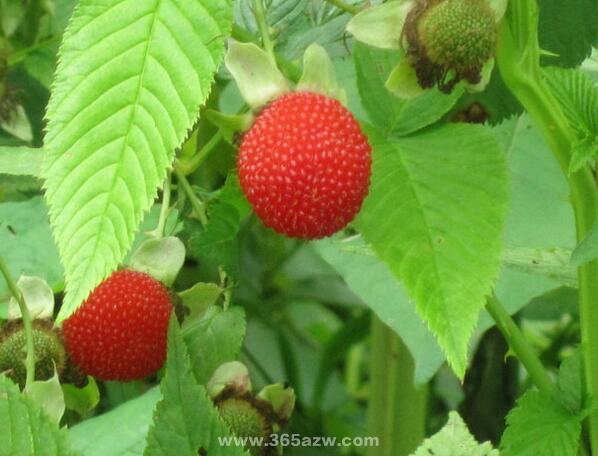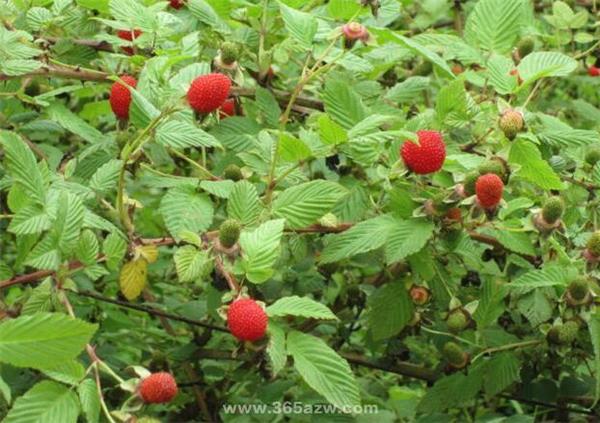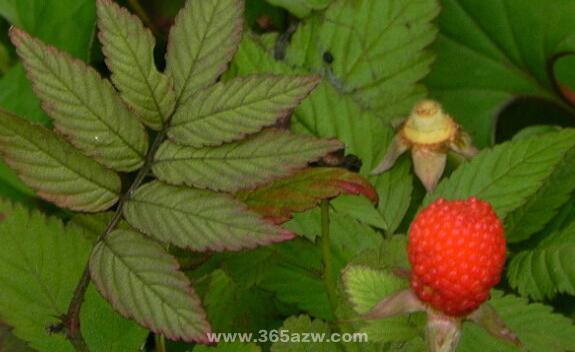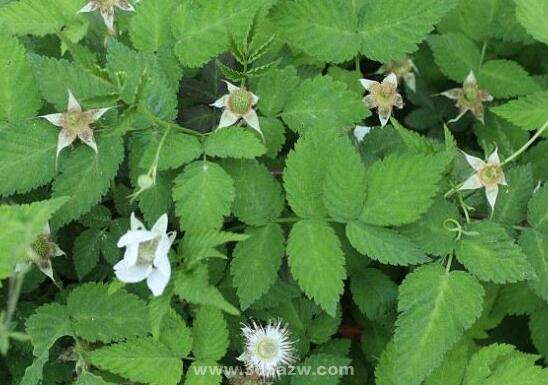Methods of hollow bubble culture and matters needing attention
Hollow bubble twig cylindrical, culture hollow bubble often have some problems, hollow bubble culture should pay attention to what problems? This paper gives a detailed introduction, which can be used as a reference.

Introduction of hollow bubbles
Hollow vesicle (scientific name: Rubus rosaefolius Smith): branchlets cylindrical, pilose or subglabrous, often with yellowish glandular spots, sparsely more erect prickles. Leaflets ovate-lanceolate or lanceolate, apex acuminate, base rounded, both surfaces sparsely pilose, with light yellow shiny glandular dots, below with sparse small prickles along midvein, margin acutely notched doubly serrate; terminal leaflet and leaf rachis pilose and prickly, covered with yellowish glandular spots; stipules ovate-lanceolate or lanceolate, pilose.
Cultivation techniques of hollow bubble
Planting method
Most of the seedlings planted in the ground and hollow bubble seedlings were planted in spring. You should choose a place with high terrain and plenty of sunshine. The hole can be dug according to the size of 50 mm in diameter and 50 cm in depth. It is best to apply barnyard manure in the hole and pay attention to cover it with subsoil so as not to burn roots. Usually put a three-year-old seedling in each hole, first straighten it, spread the roots, and then fill the soil and step on it. Then water thoroughly once, and after 3-5 days, you need to pour two more water. The colonization operation is best carried out on cloudy days.
Key points of management

Hollow bubble likes the dry soil environment of micro-tide, but the water supply should be ensured in the stage of vigorous growth. There is a large demand for fertilizer, in addition to the application of base fertilizer at the time of planting, topdressing can be applied every 2-3 weeks in the stage of vigorous growth. Hollow bubble is happy in an environment with plenty of sunlight and is resistant to shade, so it is not advisable to receive sunlight for less than 4 hours a day. It likes warmth and is afraid of severe cold. It grows well in the temperature range of 14-26 ℃, and the overwintering temperature should not be lower than-5t. In actual cultivation, hollow vesicles will be damaged by powdery mildew and black spot, and will be attacked by pear aphids, dragonflies, rose white ants, coir moths and other harmful animals.
Planting years
Hollow vesicles are perennial and have a long life, and the formed plants can be planted in situ for more than 10 years. If there is a continuous weakening of growth and other phenomena occur, you can consider updating. Be careful not to continuous cropping, it is best to change the land for planting.
The mode of reproduction of hollow vesicles
Hollow bubble cultivation is easy, rapid reproduction and large fruit, so it is a convenient raw material for the extraction of natural plant pigments.
Hollow vesicles are mainly propagated by cuttings, which are mostly carried out in spring and autumn every year. Methods such as ramet and striping can also be used to raise seedlings. It is appropriate to choose loam with good drainage, loose and fertile loam.
The therapeutic or medicinal value of hollow vesicles.

Edible value
The fruit is edible.
Source
Hollow vesicles of the genus Rubus in Rosaceae.
Medicine site
Used in medicine with roots, twigs and leaves. Collected, fresh or dried in summer and autumn.
Meridian tropism of nature and taste
Bitter, sweet, astringent, cold.
Functional indications
The whole plant can treat dysentery, irregular menstruation, menorrhagia, vomiting, cough and scald in children. Root (inverted umbrella): pungent, slightly bitter, cool. Clear heat and detoxification, activate blood circulation and relieve pain, stop belt, stop sweating, stop cough, stop dysentery. For inverted menstruation, cough, phlegm asthma, night sweats, prolapse of anus, red dysentery, infantile cough.

The method of hollow bubble culture is introduced here today. I hope you can enjoy today's article.
Related
- Wuhan Hospital Iron Tree Blooming Result Was Instantly Frightened by the Gardener Master
- Which variety of camellia is the most fragrant and best? Which one do you like best?
- What is the small blue coat, the breeding methods and matters needing attention of the succulent plant
- Dormancy time and maintenance management of succulent plants during dormancy
- Minas succulent how to raise, Minas succulent plant pictures
- What are the varieties of winter succulent plants
- How to raise succulent plants in twelve rolls? let's take a look at some experience of breeding twelve rolls.
- Attention should be paid to water control for succulent plants during dormant period (winter and summer)
- Watering experience of twelve rolls of succulent plants
- Techniques for fertilizing succulent plants. An article will let you know how to fertilize succulent plants.



